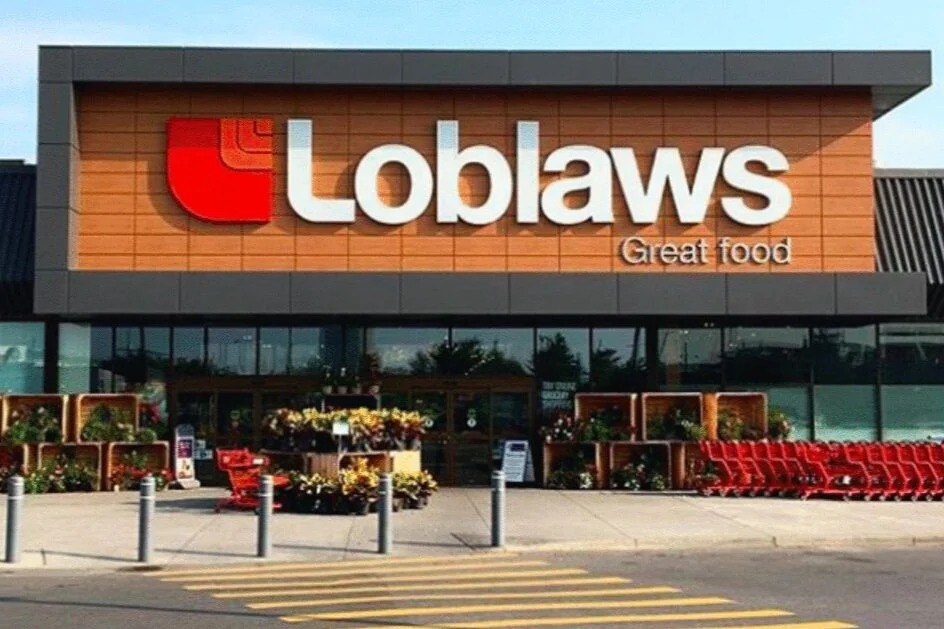Independent Retailers in Canada Hit with High Job Vacancies and Higher Property Taxes: CFIB
/Photo: westqueenwest.ca
By Dan Kelly, President and CEO of the Canadian Federation of Independent Business
Independent retailers don’t always get the recognition they deserve for the many contributions they make to their communities and to Canada. They provide young people with their first work opportunities, they grow the Canadian economy and they often sponsor local charities and sports teams. And yet, many smaller retailers are having a harder time staying competitive.
Retailers are, on average, less optimistic about the overall health of their business than other business owners, according to the Canadian Federation of Independent Business (CFIB)’s monthly Business Barometer. The shortage of skilled labour is one of the top factors hindering their growth.
Our business counsellors are increasingly getting calls from CFIB members who are struggling to find the right candidates and who are asking for guidance on filling jobs. In the first quarter of 2019, 58,700 retail jobs sat vacant for at least four months, according to our latest Help Wanted report. In fact, the vacancy rate in retail has been steadily growing since 2016. A vacant job means longer wait times for customers, a heavier load on other employees - and often on the owner themselves.
Côte-des-Neiges in Montreal. Photo: @lvbs via Instagram
Employers know that it’s never as simple as just putting a warm body in the job. They need employees with the right combination of skills and attitude – something that’s proving difficult to find. Young employees, especially, can take up a lot of time as they need more training in soft skills, like punctuality, communicating professionally and following workplace safety guidelines.
CFIB has been asking governments to recognize the training employers provide young workers by introducing an Employment Insurance (EI) training credit. Universities, colleges and high schools should also focus on creating more workplace-integrated opportunities that connect young people with small businesses. These are just a few measures that could help small firms compete with big business and government for a shrinking pool of qualified candidates.
And while it’s hard to highlight just one of the many taxes small business owners pay, CFIB has increasingly been hearing from bricks-and-mortar retailers that rising property taxes are a major impediment to their ability to stay profitable. The issue came to a head this summer in Calgary, where thousands of business owners protested the city’s decision to increase commercial property taxes by a staggering 10 to 30 per cent. The protest got the city to back down from the increase, but the fight isn’t over. Calgary is far from the only municipality where this is a problem.
Commercial Drive in Vancouver. Photo: Liv Rent
In fact, as you likely know from looking at your tax bill, nearly all local governments tax commercial properties at much higher rates than residential properties – up to nearly 5 times higher in some jurisdictions. On top of that, many provincial governments apply higher education taxes on commercial properties than residential properties. A more equal and fair distribution of property taxes between residents and businesses would help create a competitive environment for local merchants and encourage entrepreneurship.
Governments can do much to improve both of these issues for small retailers, but they won’t do it unless they’re pushed. Unfortunately, small business owners rarely have the time or resources to fight for themselves. This is where business associations can help by uniting and amplifying the voices of independent retailers and working on their behalf to demand better.
CFIB’s credit card fight is a great example of this. About a decade ago, our members told us they were being charged astronomical fees on credit card transactions, especially with the rise of rewards cards. While the big guys were able to negotiate better deals with the major credit cards, independent retailers were stuck with unfair contracts and usurious rates.
17th Avenue in Calgary. RENDERING: City of Calgary
But with the collective bargaining power of more than 100,000 members, we were able to negotiate better rates for all small businesses and exclusive savings for CFIB members with Mastercard and American Express. We also convinced the government to implement a Code of Conduct for the payments industry. While work remains to be done on the credit card file, we have certainly come a long way.
I encourage independent retailers dealing with problems like these to look to their community of business owners for support and join a business association. CFIB brings its members’ views directly to government, and we also offer expert advice on HR issues and government regulation, as well as exclusive savings on essential services like payment processing, banking and payroll management. There is strength in numbers and by joining together, small business can have a big impact. Visit cfib.ca/retail for more information.
Dan Kelly is President and Chief Executive Officer of the Canadian Federation of Independent Business, Canada’s largest association of small and medium-sized businesses with 110,000 members across every industry and region.














![L.L.Bean Continues Canadian Expansion with 1st Toronto Store [Photos]](https://images.squarespace-cdn.com/content/v1/529fc0c0e4b088b079c3fb6d/1603908990197-KDT3UNTEHFBFJF5FJ36N/L.L.Bean_Don_Mills_8.jpg)



![Retail-insider-NRIG-banner-300-x-300-V01-3[2].jpg](https://images.squarespace-cdn.com/content/v1/529fc0c0e4b088b079c3fb6d/1593476525034-QRWBY8JUPUYFUKJD2X9Z/Retail-insider-NRIG-banner-300-x-300-V01-3%5B2%5D.jpg)
![Retail-insider-NRIG-banner-300-x-300-V01-2[2].jpg](https://images.squarespace-cdn.com/content/v1/529fc0c0e4b088b079c3fb6d/1593476491497-W6OZKVGCJATXESC9EZ0O/Retail-insider-NRIG-banner-300-x-300-V01-2%5B2%5D.jpg)
![Retail-insider-NRIG-banner-300-x-300-V01-4[2].jpg](https://images.squarespace-cdn.com/content/v1/529fc0c0e4b088b079c3fb6d/1593476508900-TJG5SNQ294YNOCK6X8OW/Retail-insider-NRIG-banner-300-x-300-V01-4%5B2%5D.jpg)